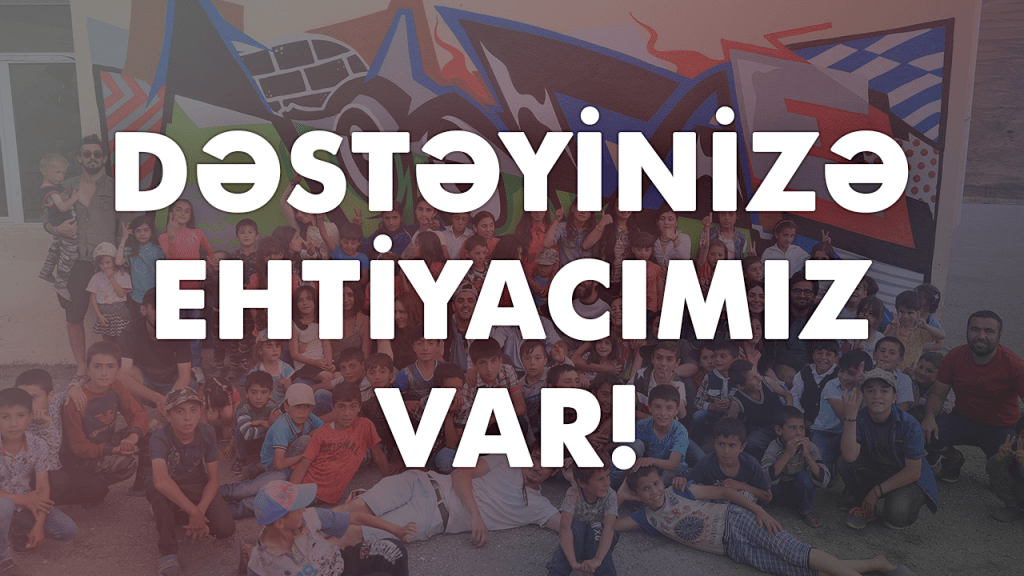Meet Diana Govasari, resurrector of the Udi hymns

Although there are more than 15 different ethnic communities in Azerbaijan, we are not very familiar with the artists from those communities. One of these communities is the Udi community, the successors of the Caucasian Albanians. Although they live mainly in the village of Nij in Azerbaijan, in the city of Oghuz, as well as in the village of Zinobiani in Georgia, they live in Russia, Ukraine and other countries as well. VarYox presents an interview with Diana Govasari, an ethnic Udi singer-songwriter living far from the lands of her ancestors.
For starters, can you give us a little background about yourself? You were born in Moscow, but you are not an ordinary Russian.
First of all, let me thank you for asking me to answer this wonderful interview. It’s my pleasure to share my Udi music and some facts about my own personal history. Actually, I was born in Ivanovo – city. It’s about 300 km from Moscow. At the age of 15, my family and I moved to Moscow, where I got my music education: at Moscow Jazz College and The Russian Gnesins Academy of Music. I am an ethnic Udi and I’m proud so much to be and to feel unique among all the world nations because it’s so small community; there are only 10.000 Udi people in the whole universe.
We often see that your music is composed or co-written by Larisa Govasari, is your family a musical one?
Yes, she’s my beloved mother. When I came from the US, where I got my English courses and remained for 3 months, a couple of years ago, I was called to the big Caucasus ethnic concert to sing here. At that time we didn’t have a Udi-language song to show the audience, so my mother decided to compose one. She composed the first and the second and co-written with me some songs (especially “The Song for Lord” and “Sa vard”). It was just an incredible moment, people really liked those songs that make us so pleasant, even though no one in my family is a professional musician except me.
When did your music career begin? Where did it take you?
I started singing when I was 2. Asking my parents to sit on a couch and to listen to my own songs… At the age of 3, my kindergarten teacher told my mom, that I need to sing and then it all began. Mom took me to a music vocal school where I did my first steps on a big stage and even won a couple of times the first-place prizes. Since that period I thought if I would become a classical, pop, or jazz singer. Well, now totally I feel like a singer of everything, cause music is so incredible to share with people. So many different songs, operas, jazz compositions, and ethnic music to explore… Need the whole lifetime to sing them all.
Although you appear to sing in Russian and English languages, you also sing religious hymns and psalms in the Udi language. How is the reaction and how do you see the future of the Udi language?
I really do feel so comfortable in all these three languages. I’m thankful for life, giving me so many opportunities to learn languages and perform different songs. Well, the reaction was awesome… People from different countries wrote to me, asking for the lyrics and for some answers about these songs and their history. I’ve never had so much audience listening to my music, as you’ve already told me, most of my own songs had been composed in Russian and English. But we have also church hymns in Udi now. It really warms my heart and makes me think about continuing co-writing with my mother in Udi. Nowadays Udi people work hard on the cultural aspect and study ancient writings in Udi; trying to recover our language. I really hope that our language will live a very long period as it is possible.
Are you in contact with Udis living in Azerbaijan? Is it hard to keep the Udi identity away from the homeland?
Yes, I have relatives there, that are so dear to me and my family. I’ve also been there twice in my childhood. And I really love that place and all those people with all my heart. We also visited Baku one day, and it was wonderful with its traditions and people. And I know that now it became even more beautiful. Talking about identity – yes, it’s very hard. Because living in Russia, for example for me meant to be included in Russian society.. music, friends, and different Russian communities. This all created my own personality, including all my skills.
You also teach vocals, is it a challenging job and can you balance your musical career with a pedagogical one?
Oh, this question is really interesting for me. Let me think… Well, I remember my first exam at the Music Academy. At that time I was thinking to myself I would never teach people.. “I’m a singer” – I told to myself. But then I understood that I had so much energy and I could share it with vocal students. I think it was a big deal that I realised that. And nowadays I can seriously say that I do it by heart and it’s so easy for me to do this. I feel myself like a fish in the ocean when I teach people how to sing. Also, I teach some music basic theories to make it right. My students are unique and passionate. Some of them already study in the Academy, others – write their own songs and music, and shoot music videos. I think that’s great, to make them understand that they can do this and they deserve it.
You also love to cover some famous songs, who are your favourite artists or bands? Which genre do you prefer to listen to or be inspired by?
A lot of music! A lot of stuff… I think it’s Adele, John Legend, Lionel Richie, Andrea Bocelli, also some Russian singers such as Boris Grebenshikov, Nikolai Noskov, Zemfira, Tamara Gverdcitelli… It depends on my mood. If I feel tired or powerless – it’s always calm music. And vice-versa. Besides, I adore Vivaldi and I do read a lot of Russian and foreign classical poetry. It never gets old. For as long as I remember there was always a song playing in our house or in our car.
Sometimes when children say that they are interested in music, they are sometimes discouraged by their parents that there is no money in this job. So, these kids end up giving up their dreams. What’s your message to aspiring musicians, especially to the ones from ethnic minorities like you?
Not to give up! This is the main advice I can give. And believe… My parents have been always supporting me. The magic phrase is “believe in yourself!”
Do you plan to release a new album soon?
Oh, I want to release an album so much and not only one, but different kinds of it. In different languages, with different world musicians. It’s such a dream! And to perform on the biggest stages.
Would you perform in Azerbaijan one day? Perhaps in one of our Xodver Live projects?
Oh, thank you so much for the invitation! I’d love to! If I ever go to Azerbaijan – I’ll definitely visit your project and sing some songs.





